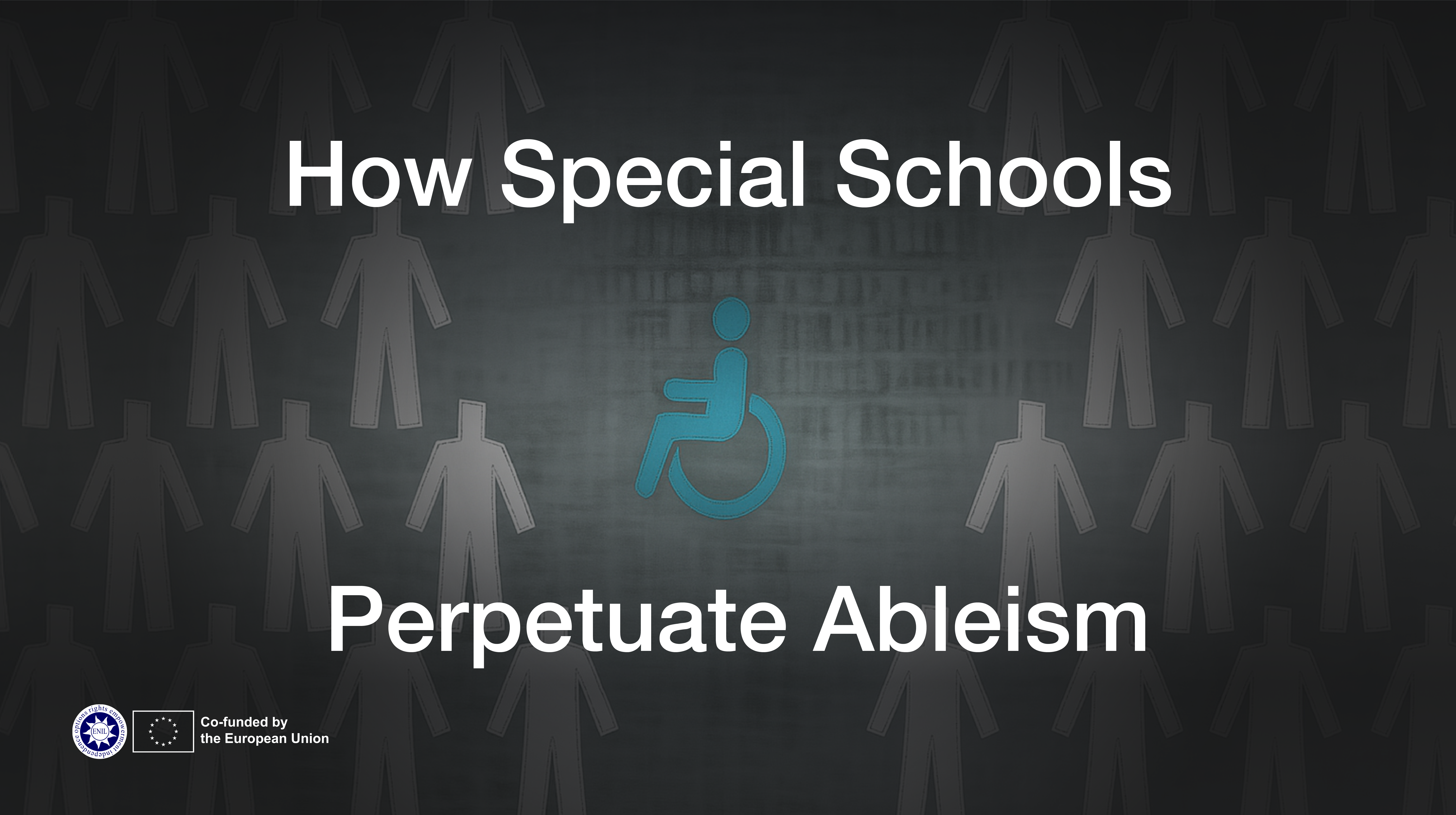By 2024, the European Commission will present a European Quality Framework for Social Services of Excellence. With the intention of shaping this legislative document, ENIL will publish an own Proposal. To ensure our work is rooted in the lived experience of disabled people and takes into consideration latest research, an online consultation with members and academics took place on the 26th of July. 35 members and 5 researchers participated in the meeting. A full audio recording is available here.
To guide the consultation, the ENIL policy department had proposed five thematic areas which we would like to see included in the Commission Quality Framework: peer support, co-design/co-decision, affordability/availability, intersectionality and disability assessments. For each of these topics, we are are aiming to propose far reaching policy recommendations which if implemented would significantly improve service provision for disabled people.
For each thematic area, speakers with academic, professional and activist backgrounds gave an input.
Peer support
Dr. James Elder-Woodward, campaigner and researcher who successfully designed peer support services in Scotland
“You can’t empower the individual without empowering their collective”
James Elder-Woodward participated in the beginning of the development of peer support in Glasgow around 1984. From the beginning, his work was underpinned by the social model of disability which teaches us that disability is separate from impairment/medical condition. It comes from the way society sets up barriers which exclude people with impairments. Independent living means having the same freedom, choice and dignity as other citizens.
James was instrumental in the creation of Centers for Independent Living (CILs), aiming to help other disabled people to manage their own system of support. There are now three CILs in Scotland. For instance, the CIL of Glasgow supports nearly one thousand people. It provides a day-to-day support to personal assistant (PA) employers in the management of their PA, a payroll service which takes responsibility for the person’s bank account and pays their PA’s wages directly, a housing support scheme which matches available and suitable houses to people, an employment service and a graduate apprenticeship scheme within the National Health Service.
In 2005, Tony Blair’s government recommended that by 2010, each locality should have a user-led organization modelled on existing CILs. In 2023, it is still not the case. This recommendation should form part of our proposal to the EU SS framework.
Sources: The Life Chances of Disabled People Cabinet Office Report, 2005
Peer support appears is key element to independent living. As one client of a peer provider said:
“I don’t mind being let down by the professionals …. they will fail you because it’s a job at the end of the day. I do feel a greater depth of disappointment with the CIL, because I expect them to have the gut feeling that I have when I deal with disability issues. And if that doesn’t come through then I am disappointed”
Priestley, M (1999) ‘Disability politics and community care’, Jessica Kingsley, Oxon
Co-design and co-decision
“Co-production without redistribution of power is not only fake co-production but it is harmful because it legitimizes the status quo (…) Genuine co-production helps counteract professional power, fight epistemic injustice, and enhance the self-determination of people who use services.”
Dr. Teodor Mladenov, Senior Lecturer at the School of Humanities, Social Sciences and Law in the University of Dundee
The terms ‘co-design’ and ‘co-decision making’ are part of the more general concept of ‘co-production’, which emerged within the US academia in the late 1970s and in Britain in the 1990s and has been appropriated by disability community.
The definition Dr. Mladenov uses in his teaching comes from the New Economics Foundation and puts its emphasis on redistribution of power:
“Co-production is a relationship where professionals and citizens share power to design, plan and deliver support together, recognizing that both partners have vital contributions to make in order to improve quality of life for people and communities.” (Slay and Penny, 2014: 7)
Co-production without redistribution of power is not only fake co-production but it is harmful because it legitimizes the status quo. Often framed as a matter of service quality improvement, co-production is above all a matter of social justice and human rights. Genuine co-production helps counteract professional power, fight epistemic injustice, and enhance the self-determination of people who use services.
The Social Care Institute for Excellence (SCIE) identifies the following components in co-production:
- co-design, including planning of services
- co-decision making in the allocation of resources
- co-delivery of services, including the role of volunteers in providing the service
- co-evaluation of the service. (SCIE, 2022: n.p.)
The earlier in the policy making process co-production happens, the more genuine it is. People who use services should be involved in the development of policies, and not only in the evaluation of their implementation. Another point to make is that co-production is more likely to happen when citizens have (at least some) control over the funding of services (as in ‘direct payments’). So, timing and control over resources are crucial.
Some issues are yet to consider:
- Tokenism ( fake coproduction)
- Internal divisions (ideological tensions, hierarchies of impairments, under-representation of minorities among disabled people)
- Soft power of professionals (for examples, non-provision of information, jargon, nudge, subtle silencing…)
- Lack of peer support
- Resources (coproduction is expensive and time consuming)
References
SCIE (2022) ‘Co-production: what it is and how to do it’ online publication. London: Social Care Institute for Excellence. https://www.scie.org.uk/co-production/what-how
Slay, J. and Penny, J. (2014) Commissioning for Outcomes and Co-production. A Practical Guide for Local Authorities. London: New Economics Foundation. https://neweconomics.org/uploads/files/974bfd0fd635a9ffcd_j2m6b04bs.pdf
Affordability and availability
“Using a social contextualization to understand how and why disabled people are encountering unnecessary barriers and that these restrictions do not have to be there if we change the way society is organized”
Dr. Miro Griffiths, early Career Research Fellow at the University of Leeds
Dr Griffith’s intervention was based on three principles: knowledge principle, unnecessary restrictions removed principle and consistency principle.
Knowledge Principle
Availability starts with the availability of knowledge: ensuring that disabled people have access to sufficient levels of knowledge to determine what support is available in their localities, what existing processes and requirements have been established, and what processes are there to seek action if decision-making processes go against the desires and expectations of the disabled person. This highlights the importance of facilitating access to information, accessible formats of information, availability of advocacy and additional support to maneuver through processes, and providing sufficient knowledge to challenge existing processes.
Unnecessary Restrictions Removed Principle
Availability of support must be orientated towards the removal of unnecessary restrictions. This could be through the use of assistive technologies, human support, adapted environments. This will alleviate the irresolvable debate surrounding how to determine one’s “need”, as well as relieving pressure on the cost benefit analysis. Funding would need to be at the threshold that has been determined (in collaboration with disability studies scholars, activists, and society organizations) necessary to remove restrictions imposed upon people who request or are identified (through community) as encountering unnecessary restrictions.
Consistency Principle
Finally, availability of support requires consistency of approach and application. This requires measures to determine, sustain, and evaluate how the availability of support is consistent across time and space. This issue matters given the variable policy approaches taken to provide support, difficulties for disabled people accessing support across the life course, and the desire/essential need for transferability of support packages (including across country borders). To improve consistency, alignment of legislative and policy procedures for support initiatives need to align with CRPD compatible approaches, as well as ensure sustained collaboration with civil society organizations.
Intersectionality
“I argue for the adoption of tailor-made community-based services that acknowledge and address the diverse needs of individuals with intersecting identities”.
Ciara Brennan (TBD), researcher with a PHD in disability from University of Iceland
A cross cutting principle should be incorporated in the framework. In that sense, intersectionality is a tool to understand how different oppressions are interconnected based on various identities (race, gender, age, disability, immigration status…). The CRPD doesn’t use the term “intersectionality”, but its principles implicitly recognize the interconnection between multiple discrimination.
To do so, collective policy formulation is essential to ensure that our voices are heard, including those with intersecting identities and underrepresented groups. Intersectionality can also be considered in the implementation of tailor-made services, including PA and direct payment which allow to make decisions that align with personal values and goals.
Universal design would ensure major access to services across different identities, for instance with the provision of accessible materials for everyone, including in different languages (ex: disabled refugee).
Disability assessments
“Moving away from thinking about ‘needs’ and listen more to what matters to a person (…) it’s about building on strengths, not on addressing deficits”.
Nick Crosby, programme lead at NDTi
The foundation of assessment is its purpose: Who is this person? What does she needs? An assessment shouldn’t be professional oriented.
Nick Crosby observed that assessments were too often focused on gathering information without listening to the person’s aspirations. It is important to adopt a person-centered approach. The process itself is important : if people feel heard, they take pleasure in seeing their words heard and recorded.
The current system is failing people : a lot of them are in institutions because they were not being served by services. Listening and not judging is the beginning of a different future for the person. Many people managed to be removed from institutions, starting with hearing what they had to say and not judging how they had to live.
Questions to the speakers and discussion
The discussions highlighted the awareness needed in the process of “co-production”. In some cases, a simple consultation of disabled organizations or working groups were abusively considered as “co-production”. Some participants argued for a clear definition of the term, and a clear separation between the “leading” and “supporting” roles. A proposition to give the whole leadership of decision making to disabled people using services was proposed, but other participants considered it unrealistic at this stage, and co-production was seen as a step in this direction. However, disabled leadership would not completely prevent tokenism and abuse.
The importance of the representation of minorities (in particular Black and Asian disabled people) was also mentioned.



